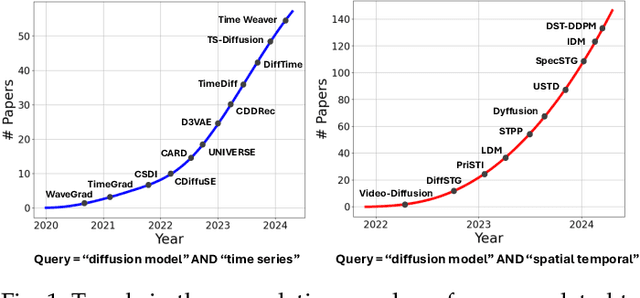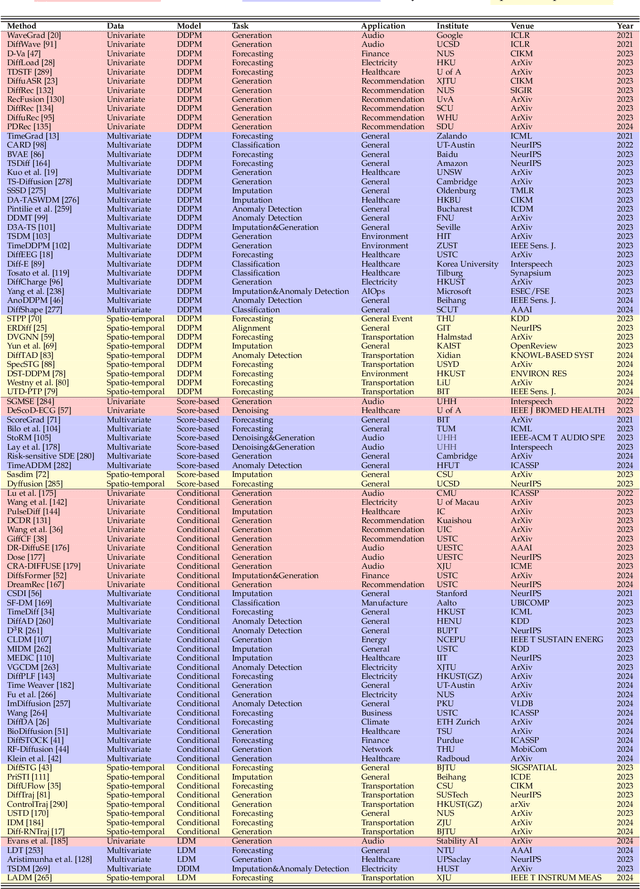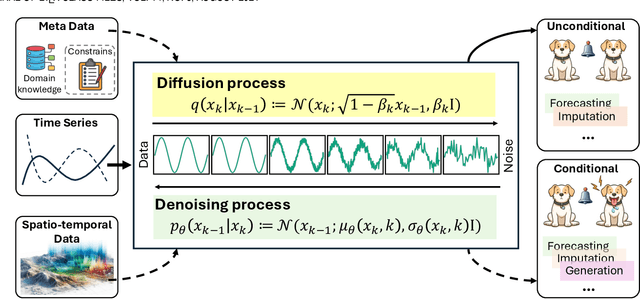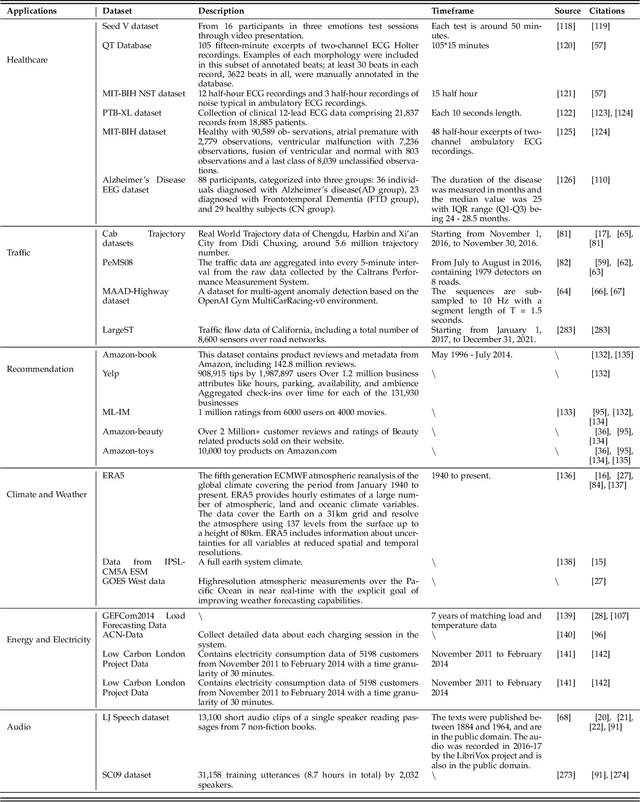A Survey on Diffusion Models for Time Series and Spatio-Temporal Data
Paper and Code
Apr 29, 2024



The study of time series data is crucial for understanding trends and anomalies over time, enabling predictive insights across various sectors. Spatio-temporal data, on the other hand, is vital for analyzing phenomena in both space and time, providing a dynamic perspective on complex system interactions. Recently, diffusion models have seen widespread application in time series and spatio-temporal data mining. Not only do they enhance the generative and inferential capabilities for sequential and temporal data, but they also extend to other downstream tasks. In this survey, we comprehensively and thoroughly review the use of diffusion models in time series and spatio-temporal data, categorizing them by model category, task type, data modality, and practical application domain. In detail, we categorize diffusion models into unconditioned and conditioned types and discuss time series data and spatio-temporal data separately. Unconditioned models, which operate unsupervised, are subdivided into probability-based and score-based models, serving predictive and generative tasks such as forecasting, anomaly detection, classification, and imputation. Conditioned models, on the other hand, utilize extra information to enhance performance and are similarly divided for both predictive and generative tasks. Our survey extensively covers their application in various fields, including healthcare, recommendation, climate, energy, audio, and transportation, providing a foundational understanding of how these models analyze and generate data. Through this structured overview, we aim to provide researchers and practitioners with a comprehensive understanding of diffusion models for time series and spatio-temporal data analysis, aiming to direct future innovations and applications by addressing traditional challenges and exploring innovative solutions within the diffusion model framework.
 Add to Chrome
Add to Chrome Add to Firefox
Add to Firefox Add to Edge
Add to Edge